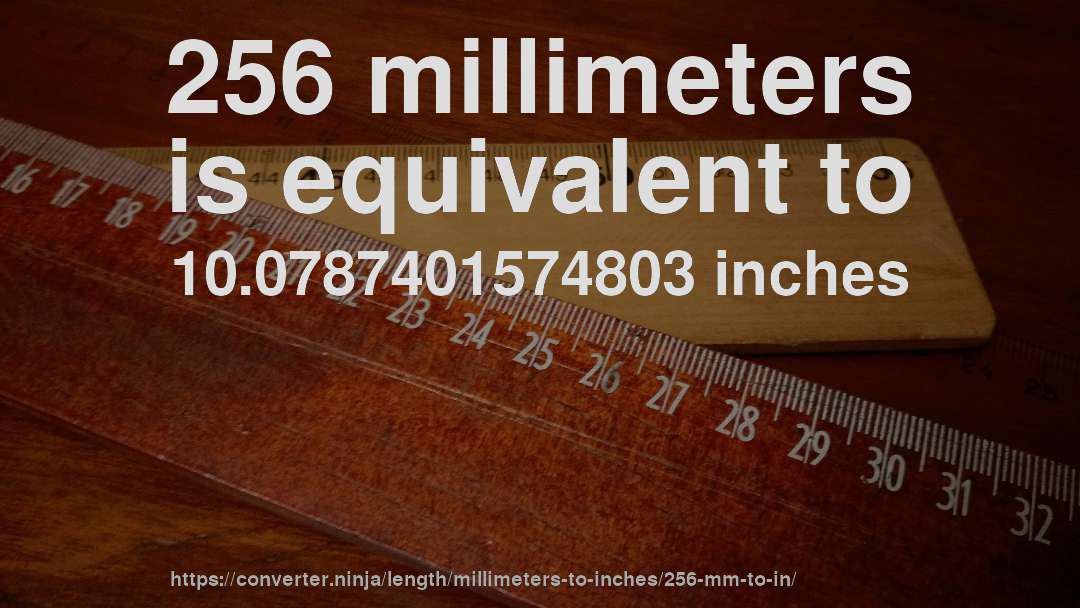
256 millimeters is equivalent to 10.0787401574803 inches.
We know (by definition) that: 1 mm ≈ 0.039370079 in
We can set up a proportion to solve for the number of inches.
1 mm 256 mm ≈ 0.039370079 in x inNow, we cross multiply to solve for our unknown x:
x in ≈ 256 mm 1 mm * 0.039370079 in → x in ≈ 10.078740224 inConclusion: 256 mm ≈ 10.078740224 in
The inverse of the conversion factor is that 1 inch is equal to 0.09921875 times 256 millimeters.
It can also be expressed as: 256 millimeters is equal to 1 0.09921875 inches.
Approximation
An approximate numerical result would be: two hundred and fifty-six millimeters is about ten point zero eight inches, or alternatively, a inch is about zero point one zero times two hundred and fifty-six millimeters.
Units involved
This is how the units in this conversion are defined:
Millimeters
The millimetre or millimeter (American spelling) is a unit of length in the metric system, equal to one thousandth of a metre, which is the SI base unit of length.
Inches
The inch (abbreviation: in or ″) is a unit of length in the imperial and United States customary systems of measurement now formally equal to 1⁄36 yard but usually understood as 1⁄12 of a foot. Derived from the Roman uncia (twelfth), inch is also sometimes used to translate related units in other measurement systems, usually understood as deriving from the width of the human thumb. Traditional standards for the exact length of an inch have varied in the past, but since the adoption of the international yard during the 1950s and 1960s it has been based on the metric system and defined as exactly 2.54 cm.
[1] The precision is 15 significant digits (fourteen digits to the right of the decimal point).
Results may contain small errors due to the use of floating point arithmetic.ncG1vNJzZmibn6PDpr7Tnqlnppmjt6J7y56loKyYZLqquMuipJ6slafAbsDOZqCnm5iawHB%2BlG9kpqVdqbxutc1o